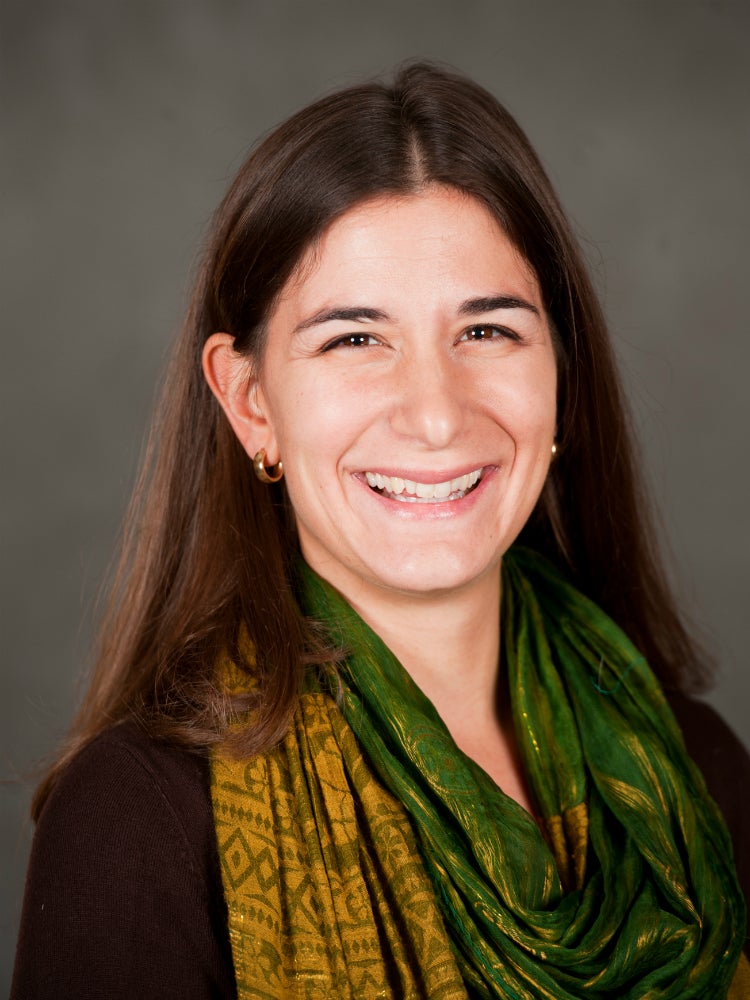The International Politics (IPOL) major examines how states and non-state actors cooperate and compete on political issues. In contemporary geopolitics, there is no longer the stable hierarchy of issues that dominated policy makers’ and scholars’ attention during the Cold War period of 1945 through the late 1980s. Now, numerous non-security issues compete with security for the attention of policymakers, outside analysts, scholars, and citizens.
The Undergraduate Bulletin
It is the responsibility of each student to keep well-informed with respect to the policies and requirements in the Undergraduate Bulletin and all other policies of the University, school, and program in which they are enrolled. Any updates made to the Undergraduate Bulletin will be communicated to students.
Read more about the IPOL major on the Georgetown Undergraduate Bulletin.
Dean & Field Chair
Curricular Deans provide guidance tailored to each student by connecting their interests with academic backgrounds, academic and non-academic opportunities, and faculty expertise, while guiding academic and personal development.
Back to Top
Shawna Julia
Curricular Dean for IPOL

Jeanette Llorens
Curricular Dean for IPOL

Curricular Requirements
IPOL majors must complete nine (9) courses, including:
- INAF-3200: Quantitative Methods for International Affairs
- (5) Five courses selected from the student’s primary concentration field. One (1) course MUST be a specified concentration course that will appear on MyDegree upon declaration. Available fields of concentration:
- International Law, Institutions and Ethics
- International Security
- Foreign Policy and Policy Processes
- Self Defined
- (3) Three major elective courses, including the distributional requirement of at least one course each from the two other non-concentration fields. Additionally, students may select up to one course from the supporting electives list towards the completion of this requirement.
Download the IPOL Course of Study
Back to TopConcentrations in the Major
International Law, Institutions and Ethics
This concentration focuses the questions of global civil society and on the role of norms, rules, and institutions in international politics. Students who do work in this concentration are encouraged to think about three broad sets of issues:
- What are the philosophical foundations for the norms, rules, and institutions that exist in international relations? Related to this, what kinds of norms, rules, and institutions actually exist, and how can their performance be assessed?
- By what processes are these norms, rules, and institutions created and changed?
- What role do norms, rules, and institutions play in shaping the behavior of state and non-state actors in the international system?
While the international political system lacks both enforceable rules and a government, there are many aspects of organization within security, trade, the environment, and other issue-areas. In some courses, students examine formal legal rules, which comprise the body of contemporary international law. In others, they examine formal or less formal international institutions such as the United Nations, the International Monetary Fund, and the Group of Seven Industrialized Nations. In still other courses, students examine the foundations and content of ethics in international relations, which at times provide the normative structure for legal rules and various institutions.
International Security
Security studies examines the causes, practices, and effects of armed conflict among and within states. It focuses on how people use, threaten, and prepare to use force to achieve their goals. Traditionally, force and the threat of force have been thought to be the major problems in international politics: humans have fought for as long as they have lived in organized groups. Yet for nearly as long, they have also thought and written about the ways in which force and war can be controlled. Scholars as well as political leaders and diplomats have been concerned with these issues. In this concentration, students examine three main questions:
- What accounts for the use of force?
- How do states and non-state groups profit from and plan to use or threaten the use of force?
- How, if at all, can the likelihood or costs of violence be controlled?
To be secure is to be able to protect one’s core values. Since the end of the Cold War, some maintain that “security” has taken on a broader meaning than before. They argue that security now includes protection from various non-military as well as military threats, including damage to the environment. Students taking this concentration are encouraged to fashion their own way of thinking about security by sampling courses on various aspects of this topic.
Foreign Policy and Policy Processes
A state’s foreign policy is the way it relates to the international system. Essentially, foreign policy is the set of actions designed to further states’ interests in a world where other actors may have conflicting or compatible interests. To the extent that states cannot provide for their own security, economic welfare, or other needs, they must build relationships with other states and non-state actors. In this concentration, students examine how and why states make choices that pertain to these issues. They explore how foreign policy is formulated, some of the key instruments states use in the conduct of their foreign policies (e.g. military force, economic statecraft, diplomacy, and intelligence), and analyze the foreign policies of selected states in the contemporary or in historical international systems.
The analysis of foreign policy involves a number of recurring issues:
- To what extent do states’ foreign policies involve reactions to their external environments, and how much stems from such internal factors as type of political system or leaders’ beliefs and perceptions?
- How do states integrate various types of potential power (e.g. military, economic, cultural, or ideological resources) into a plan for dealing with other international actors?
- Can we generalize about the processes of foreign policy across states, or are the factors that produce foreign policy largely country or problem-specific?
Students choosing to do work in this concentration should ponder these questions by taking various courses on the substantive and process aspects of foreign policy. Notice that while students can study American foreign policy, students can also enrich that study by analyzing other countries’ policies and policy processes.
Self Defined
In the self-defined concentration, students must take one course from International Law, International Security, and Foreign Policy; beyond that, students are free to mix and match a combination of 5 additional upper level IPOL courses. Students often choose this option if they are trying to achieve a niche area of study within the major by self selecting specific courses.
Courses in the Major
Although the International Politics major is a multi-disciplinary major, the majority of courses in the major are taught by political scientists and international relations experts from the Government and SFS faculty. However, there are significant contributions from the Departments of History, Philosophy, Sociology, Theology, and the SFS’ regional studies programs.
To find the most up to date list of classes, as well as past semester course lists, visit GU Experience and take the following steps:
- GU Experience > Student Services > Registration > Schedule of Classes > Select Term >
- In the subject menu, select International Politics
- Scroll down and click the Class Search button
Writing in the Major
Students majoring in IPOL satisfy the Integrated Writing requirement through the government department seminars. All government department seminars—3000-level courses and which contain the “Dep Sem” prefix—require writing assignments, either multiple short papers or one long paper.
Students are also encouraged to take non-GOVT courses that have significant writing components, expressed through the instructor’s description of the course.
Honors in the Major
The standards and expectations for honors-quality work are consistent with the ideal that students completing honors in the IPOL major are among the premier thinkers and writers at Georgetown. An IPOL honors thesis is best suited for students who have an interest in exploring a specific puzzle and/or field of knowledge beyond their previous course work at Georgetown. An IPOL honors thesis is an in-depth analysis of a specific research question supported by original research.